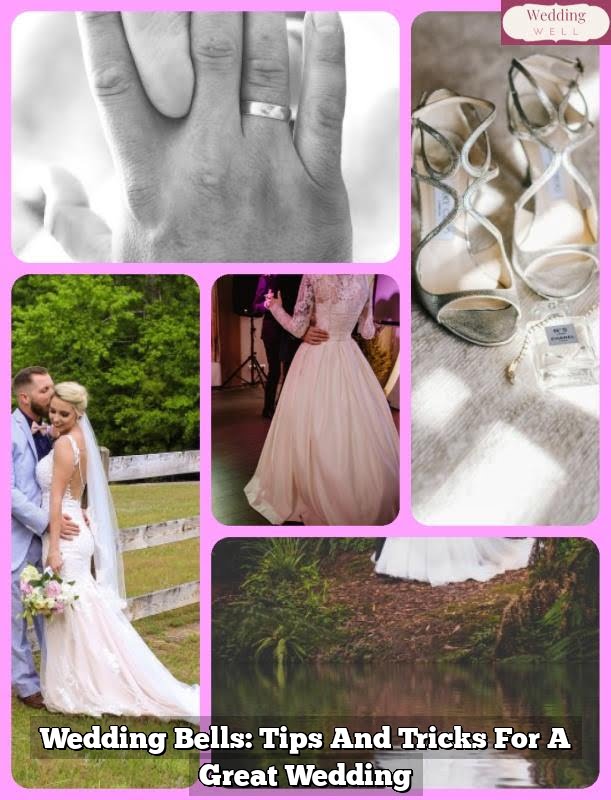Planning a wedding can be an overwhelming and daunting task for any couple. From budgeting and vendor selection to design and day-of coordination, there are countless details to consider in order to ensure a perfect day. This is where a wedding planner comes in. So, what do wedding planners do? They take on the responsibility of overseeing every aspect of the wedding planning process, allowing couples to relax and enjoy their special day without any added stress.
A wedding planner’s role begins with the initial consultation, where they work closely with the couple to understand their vision for the big day. From there, they assist with budgeting and vendor selection, making the most of every dollar to create a memorable event. Additionally, they manage timelines and ensure that everything stays on track leading up to the wedding day.
Furthermore, wedding planners are responsible for overseeing the design and dcor of the venue, creating the perfect atmosphere that reflects the couple’s unique style and taste. On the day of the event, they provide seamless coordination to ensure that every detail is executed flawlessly. And with their expertise in handling potential issues and last-minute changes with ease, couples can rest assured that their special day will go off without a hitch.
The Initial Consultation
Building Rapport and Trust
One of the key objectives during the initial consultation is to establish a strong rapport and trust between the wedding planner and the couple. This involves active listening, empathy, and clear communication to ensure that all parties are on the same page. By fostering a trusting relationship from the beginning, wedding planners can effectively carry out their duties and make the couple feel confident in their expertise.
Setting Expectations
During this phase, it is important for wedding planners to clearly outline what services they offer and what can be expected throughout the planning process. They should also discuss logistics such as timelines, deadlines, and payment schedules to ensure that both parties have a mutual understanding of the collaboration ahead. Managing expectations from the start can help prevent misunderstandings down the line and create a smoother planning experience for everyone involved.
Overall,
Budgeting and Vendor Selection
When it comes to budgeting and vendor selection, wedding planners play a crucial role in ensuring that couples make the most of every dollar spent on their special day. One of the first tasks for a wedding planner in this stage is to help the couple establish a realistic budget based on their vision and priorities for the wedding.
This involves not only determining how much they can afford to spend but also guiding them on where to allocate their funds for maximum impact.
Wedding planners also assist in identifying and selecting vendors such as caterers, florists, photographers, and entertainment that align with the couple’s style and budget. They leverage their network of industry connections to recommend reputable professionals who can deliver quality services within the allocated budget.
Another important aspect of the budgeting and vendor selection process is negotiating contracts and managing payments. Wedding planners are skilled in securing favorable terms for their clients while ensuring that all financial agreements are clearly outlined and adhered to throughout the planning process.
Budgeting and vendor selection are critical components of wedding planning, as they directly impact the overall success and satisfaction of the couple. By working closely with clients in these areas, wedding planners strive to create memorable experiences while maximizing the value of every dollar spent.
| Aspect | Role |
|---|---|
| Budget Establishment | Assist couples in establishing a realistic budget based on their vision and priorities. |
| Vendor Selection | Identify and select vendors aligned with the couple’s style and budget, leveraging industry connections. |
| Contract Negotiation | Negotiate contracts and manage payments to secure favorable terms for clients. |
Timeline Management
Creating a Comprehensive Wedding Timeline
One of the most important responsibilities of a wedding planner is to create and manage a comprehensive wedding timeline. This includes scheduling everything from the initial vendor meetings to the final send-off at the end of the wedding reception. The timeline serves as a guide for everyone involved in the wedding, including the couple, vendors, and the wedding planner themselves. It helps ensure that every aspect of the wedding is well-coordinated, from start to finish.
Coordinating With Vendors and Venue
A significant part of timeline management involves coordinating with various vendors and the wedding venue. This may include scheduling delivery times for flowers, coordinating with the caterer for meal service, and ensuring that the DJ or band knows when to play specific songs. Wedding planners work closely with all parties involved to make sure that everyone is on the same page regarding timing and execution.
Handling Unexpected Delays or Issues
Inevitably, unexpected delays or issues may arise on the wedding day. Whether it’s due to traffic delaying vendor arrivals or unforeseen changes in weather affecting outdoor ceremonies, it’s up to the wedding planner to quickly assess the situation and make necessary adjustments to keep everything on track. Their expertise in managing timelines allows them to make quick decisions without causing unnecessary stress for the couple or their guests.
By effectively managing timelines, wedding planners play a crucial role in ensuring that every aspect of a couple’s special day runs smoothly and according to plan. Their attention to detail and ability to stay organized under pressure are essential qualities that make their services invaluable in executing flawless weddings.
Design and Décor
When it comes to creating the perfect atmosphere for a wedding, the role of a wedding planner is crucial. Wedding planners are responsible for not only coordinating every aspect of the event but also for ensuring that the design and décor reflect the couple’s vision. This involves working closely with the couple to understand their preferences, themes, color schemes, and overall style they want to achieve on their special day.
One of the key responsibilities of a wedding planner in this aspect is to source and coordinate with various vendors such as florists, decorators, lighting experts, and rental companies to bring the couple’s vision to life. This includes making decisions about floral arrangements, table settings, centerpieces, lighting design, linens, and other decorative elements. Wedding planners have an extensive network of trusted vendors that they work with to ensure that every detail fits seamlessly into the overall design concept.
In addition to coordinating with vendors, wedding planners also create detailed design plans and layouts for the ceremony and reception spaces. They oversee setup on the day of the event to ensure that every element is in place according to plan. Their ultimate goal is to transform each space into a captivating and enchanting environment that will leave a lasting impression on both the couple and their guests.
| Responsibilities of Wedding Planners | Details |
|---|---|
| Collaborate with couples | To understand their design preferences |
| Coordinate with vendors | To source décor elements according to the couple’s vision |
| Create detailed design plans | For ceremony and reception spaces |
Day-of Coordination
On the day of the wedding, a wedding planner’s role is crucial in ensuring that every single detail is executed to perfection. The coordination and management of various aspects of the event are essential in creating a seamless and unforgettable day for the couple and their guests. Here are some key responsibilities that wedding planners take on during the day of the event:
- Overseeing vendor setup and deliveries: Wedding planners are responsible for ensuring that all vendors arrive on time and set up according to plan. This includes coordinating with florists, caterers, musicians, and other service providers to make sure everything is in place before the event begins.
- Managing the flow of events: From the ceremony to the reception, wedding planners work behind the scenes to ensure that everything runs smoothly. This may involve cueing the bridal party for their entrance, coordinating with the emcee for speeches, and making sure that special moments like cake cutting and first dances happen at the right time.
- Handling unexpected challenges: Despite meticulous planning, unforeseen issues can arise on the day of the wedding. Wedding planners are trained to handle any last-minute changes or emergencies with ease, from a sudden downpour requiring a quick switch to an indoor location, to addressing technical glitches during sound setups.
Overall, day-of coordination is an essential aspect of what do wedding planners do as they play a fundamental role in orchestrating a flawless and stress-free wedding day for their clients while ensuring everything comes together seamlessly. Their expertise allows couples to relax and enjoy their special day knowing that every detail is being meticulously managed behind-the-scenes.
Management of Potential Issues
When it comes to planning a wedding, unexpected issues can arise at any time. This is where a skilled wedding planner truly shines, as their expertise in handling last-minute changes can make all the difference in ensuring a smooth and stress-free wedding day. Here are some of the key responsibilities of a wedding planner when it comes to managing potential issues:
- Quick problem-solving: Wedding planners are adept at thinking on their feet and coming up with creative solutions to unexpected challenges. Whether it’s a sudden change in weather or a vendor cancellation, they know how to address the issue swiftly and effectively.
- Vendor communication: In the event of any last-minute changes, wedding planners take charge of communicating with vendors to reorganize schedules or find suitable alternatives. This ensures that any disruptions have minimal impact on the overall plan.
- Keeping the couple calm: One of the most important roles of a wedding planner during potential issues is to reassure and calm the couple. By providing clear and confident communication, they can alleviate stress and allow the couple to enjoy their special day without worry.
With these responsibilities in mind, it’s clear that a wedding planner plays an essential role in managing potential issues that may arise before or during the wedding day. Their experience and expertise enable them to navigate unexpected challenges with ease, allowing the couple to focus on celebrating their love without being burdened by unforeseen complications.
Post-Wedding Duties
In conclusion, the role of a wedding planner is multifaceted and crucial to the success of any couple’s special day. From the initial consultation to post-wedding duties, wedding planners are there every step of the way to ensure that every detail is taken care of and that the couple’s vision becomes a reality.
After the wedding day has come and gone, wedding planners still have important responsibilities to fulfill. Wrapping up loose ends and ensuring client satisfaction is key in maintaining a positive reputation and securing future business. This may include finalizing vendor payments, collecting any outstanding items from the venue, and obtaining feedback from the couple to evaluate their level of satisfaction.
Ultimately, what do wedding planners do? They are instrumental in alleviating stress for the couple, handling logistics behind the scenes, and bringing creativity and expertise to create a memorable and seamless event. Their dedication to their clients’ needs throughout the entire wedding planning process makes them valuable assets in achieving a successful and unforgettable celebration.
Frequently Asked Questions
What Is the Function of Wedding Planner?
The function of a wedding planner is to help couples plan and organize their wedding day. This includes coordinating vendors, creating timelines, managing budgets, and ensuring everything runs smoothly on the big day.
Does a Wedding Planner Do Everything for You?
While a wedding planner can take on many tasks and responsibilities, they may not necessarily do absolutely everything for you. Couples still have some input in decision-making processes and may need to be involved in certain aspects of the planning.
What Are the Disadvantages of Having a Wedding Planner?
Some disadvantages of having a wedding planner could include the added cost to your wedding budget. Additionally, if you are someone who enjoys being hands-on and involved in every aspect of planning your special day, having a planner may take away some of that experience from you.
There is also the possibility of miscommunication or differing visions between the couple and the planner.

Welcome to my blog about home and family. This blog is a place where I will share my thoughts, ideas, and experiences related to these important topics. I am a stay-at-home mom with two young children. I hope you enjoy reading it! and may find some helpful tips and ideas that will make your home and family life even better!





